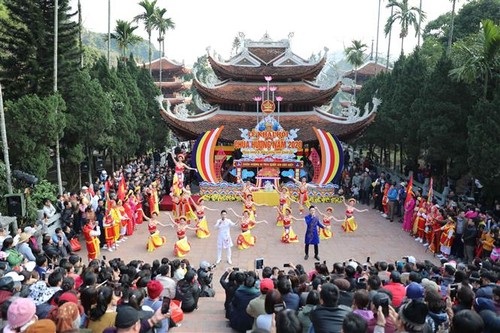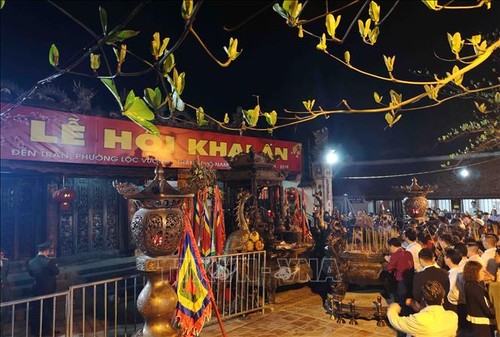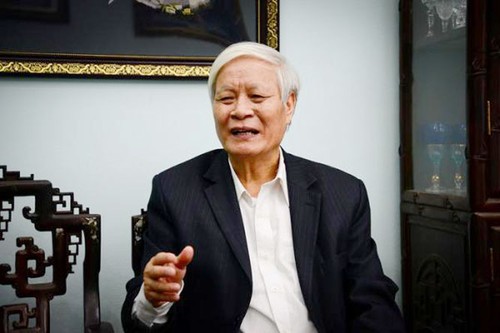 Huong pagoda's opening ceremony in 2020. (Photo: baotintuc.vn) Huong pagoda's opening ceremony in 2020. (Photo: baotintuc.vn) |
For the Vietnamese people, spring is the season of festivals. Every year, after Tet, festivals are held in all regions, from mountainous towns and rural areas to modern cities. It is a time for people not only to relax after a hard year of work, but also to remember their ancestors, national heroes, and Vietnamese legends.
During Lunar New Year, people often go out together to enjoy the peaceful, verdant scenery and cool, fresh air of springtime.
"Spring signals the beginning of a new Lunar year, so Vietnamese people often pray for good fortune. Besides the spiritual significance, spring festivals are also a chance for people to become closer, and create strong attachments through community activities," said Doctor Tran Huu Son, Vice Chairman of the Vietnam Folklore Literature and Arts Association.
"They’re also a great opportunity for people to appreciate their roots, by paying respects to their ancestors, before reflecting on their wishes for the coming year. These festivities are full of joy and merriment."
 The Tran Temple Seal Opening Festival in Nam Dinh City in 2019. (Photo: VNA) The Tran Temple Seal Opening Festival in Nam Dinh City in 2019. (Photo: VNA) |
Nearly 8,000 festivals take place annually across Vietnam, most of them in spring. They include historic and revolutionary festivals, religious ceremonies, and celebrations of tradition and folklore.
Significant festivals in Vietnam draw a lot of visitors, such as the Hung Kings’ Temple Festival in Phu Tho province, the Huong Pagoda Festival and the Dong Da Hill Festival in Hanoi, the Tran Temple Seal Opening Festival in Nam Dinh City, the Lim Festival in Bac Ninh province, and the Ba Den (Black Lady) Mountain Spring Festival in Tay Ninh province.
“Vietnam has 54 ethnic groups, which are 54 treasure troves of culture. I think we might actually have more than 8,000 festivals annually, as some ethnic groups have reported on some festivals which have become obsolete, and have asked for state help to revive them. Spring festivals reflect the desire of Vietnamese people to build spirituality and trust in their communities,” said Doctor Ban Tuan Nang from the Institute of Culture and Development of HCM City National Academy of Politics.
 Doctor Nguyen Viet Chuc, Head of the Thang Long Culture Research Institute. (Photo: hanoimoi.com.vn) Doctor Nguyen Viet Chuc, Head of the Thang Long Culture Research Institute. (Photo: hanoimoi.com.vn) |
Each region’s spring celebrations have their own rituals and festivals, depending on the culture and customs of the local people. They are closely related to regional folklore, and contribute significantly to preserving and promoting Vietnam’s culture, according to Doctor Nguyen Viet Chuc, Head of the Thang Long Culture Research Institute.
"When talking about preserving national culture, it’s impossible not to mention our folk culture. Not just our myths and legends, but also folk music and traditional games. Our folklore reflects the wisdom of the entire nation," said Chuc.
Spring festivals are not only a precious cultural treasure of our people, but also a great attraction for those who want to learn more about the culture and customs of Vietnam.